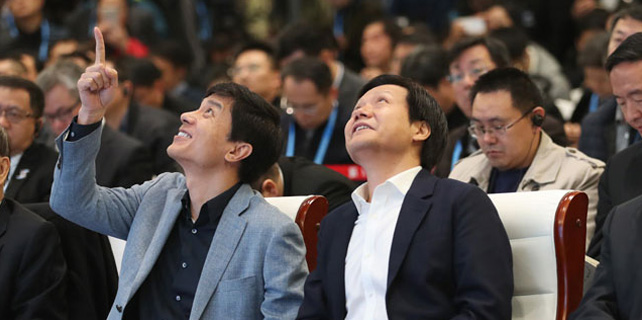Latin lovers' loss will be China's gain
In Europe, we are used to joking about why women are so fond of French and Italian men and why Germans produce the best cars in the world. These may sound like stereotypes, but there is some truth behind them.
A Latin lover is curious about his partner and her interests. He wants to make her feel special and seeks to anticipate her wishes: make a remark that tunes in to her thoughts, invite her to a restaurant she will like, give her a present that she was silently dreaming about. In fact, Latin lovers spend a lot of time talking and listening so as to understand and predict their partner's wishes. Nothing is more seductive for a woman than a man who can anticipate her wishes.
Northern Europeans, on the other hand, spend that time at work or designing new products. Their view is that economic success will allow them to afford all the commodities that women could dream of.
This reflects the dilemma of mankind: invest time in relations or in productive activities?

However, the internet will soon allow us to overcome this dilemma, and this was a common thread of the gathering of the most influential key decision makers and high tech company leaders in Wuzhen for the World Internet Conference, from Dec 3 to 5, with the theme of developing the digital economy and promoting open sharing.
Open sharing goes together with digital economic development. It generates consumer data, which in turn allows improved focusing on products and services. This is the revolution that has been brought about by big data and artificial intelligence, and China is now in the lead for two reasons.
The first is a huge market of more than a billion consumers. The essence of big data is to use data from as vast a population as possible to find correlations and predict future behavior. The size of the Chinese market has contributed decisively to the success of Ctrip and Alibaba. These companies collect a massive amount of data about consumer choices. Their algorithms deduce predictions from these data that allow them to make targeted proposals to clients, which in turn brings increased sales.
A second reason is the tremendous development of IT processing power. Predictive algorithms are still in their infancy but can be improved and refined by computers on the basis of whether or not the predictions derived from algorithms actually materialize. The world's fastest computers are Chinese - the Sunway TaihuLight at China's National Supercomputing Center and the Tianhe-2 at the National Supercomputer Center in Guangzhou.
At the same time, China can still learn from Europe. Today, two paradigms for the development of the internet are competing: the Chinese model, government-led, and the United States model, Wall Street-led. The problem I see with the US model is that Wall Street has no interest in rural areas. The "digital divide" is also a hot issue in Europe. President Xi Jinping's October speech at the 19th National Congress of the Communist Party of China reflected concerns in China are very similar to those in Europe. Avoiding a digital divide at the expense of the rural regions is a priority issue. As in other areas, China and the European Union share very similar concerns.
More than many European countries, China is confronted with massive migration from rural areas to the Beijing-Tianjin-Hebei area. In the digital age, it should no longer matter so much whether you live in the capital city or in a rural area. But what we see is massive network investment in densely populated areas and less, or no, investment in the poorer, rural areas. Given the nation's geographic size, the problem is even more acute in China than in European countries, but the solutions are similar. I think, for example, that a government-led single 5G and fiber network deployment in rural areas, open for all Chinese telecom operators, would be a best practice for China that would be copied globally.
The global advantage of China is in equipment and services relating to high capacity digital communications. However, opportunities for China will only be maximized if fiber connections to the home networks are deployed globally, which will also serve as the basis for 5G networks.
There is a "chicken or egg" paradox. If Chinese industry wants to reap the full benefit of its technological leadership, a pre-condition is the global deployment of pervasive fiber to home networks. Chinese companies should therefore cooperate and create joint initiatives with European fiber-to-home companies, to help the latter increase their footprint. Once deployed, fiber networks will be the superfast internet infrastructure on which Chinese artificial intelligence will thrive.
As an Italian, I should be fearing such an outcome. When Chinese-developed artificial intelligence allows any man in the world to learn and anticipate the wishes of his partner, we Latins will lose our current unique advantage.
The author is president of ChinaEU Association for Digital. The views do not necessarily reflect those of China Daily.
(China Daily European Weekly 12/08/2017 page8)


















